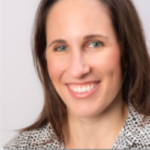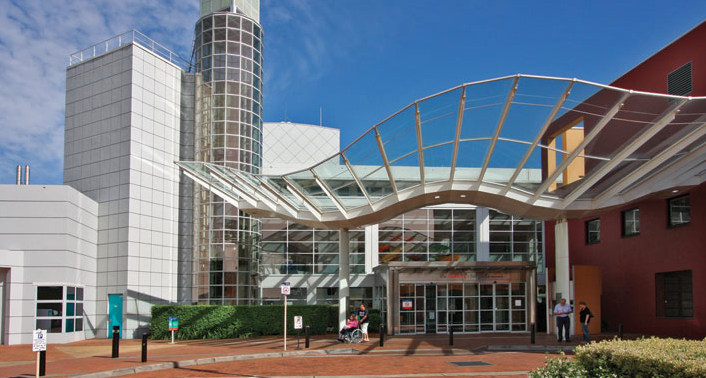
- This event has passed.
ILE PEDIA FORUM – Sydney, Australia (October 2019)
Session Dates:
October 30 – 31
Speakers & Lecture Synopsis
TOPIC 1
Why The First 1000 Days Is So Important In Later Life
Prof. Peter S.W. Davies
TOPIC 2
Healthful Habits: A Family Affair
Karina Savage
 Prof. Peter SW Davies
Prof. Peter SW Davies
BSc (Hons), M Phil, PhD, R.Nutr, FNSA
Group Leader – Nutrition Research Group
Child Health Research Centre
Professor Peter Davies is the Director of the Children’s Nutrition Research Centre (CNRC) in the School of Medicine at The University of Queensland.
Peter has served on the editorial boards of the International Journal of Body Composition Research, Acta Paediatrica, Annals of Human Biology and the International Journal of Obesity. Peter is also Associate Editor for the Annals of Nutrition and Metabolism. Prior to this UQ appointment in October 2000, he held appointment with the Faculty of Health at Queensland University of Technology. He was also staff at the Medical Research Council’s Dunn Nutrition Unit in Cambridge, UK within the Energy Metabolism in Childhood Group prior to moving to Australia in October 1995.
He has published over 450 articles and papers in the field of nutrition, energy metabolism and growth and development in both health and disease in infants and children. He has been a member of a number of expert panels and international groups related to energy expenditure and energy metabolism in children. He has also had a long-term interest specifically in infant nutrition and this area forms one of the major research interests within the Children’s Nutrition Research Centre. Much of Professor Davies’ work has utilized novel and new isotopic tracers to investigate energy metabolism and body composition in health and disease.
He has also been a member of the Board of Save the Children Australia, a member of the Queensland Minister of Health Food Safety Advisory Committee, Honorary Secretary of the Nutrition Society of Australia, and a past president of Nutrition Australia. He is formerly a member of the NHMRC Dietary Guidelines Working Committee and chairs a number of advisory boards in the nutrition and pharmaceutical industries.
 Karina Savage
Karina Savage
Director, Smartbite Nutrition Consulting
Karina Savage is a leading Paediatric Gut Health Dietitian (Nutritionist) with 15 year’s experience of clinical paediatric experience and is the Director of Smartbite Nutrtion Team. She currently practices primarily at Sydney (Mosman and Randwick, NSW) seeing infants, children and adolescents. She worked at Women’s & Children’s Hospital in Adelaide where she specialised in gastroenterology (both clinically and research). She is a published author in the area of pediatric reflux and allergy.
Her specialization in Children’s Gut Health enables her to support parents in managing their child’s issue such as food allergy, carbohydrate intolerance, IBS (FODAP), Coeliac, Crohns Disease, Constipation and colic.
She is a public speaker and educator focusing on educating International Peadiatricians, Nurses, GPs, Dietitians and other Health professionals.
Day 1
| 1:30PM | Enroute to Hospital |
| 2:00PM | Arrival and Registration |
| 2:30PM | Hospital Observership Welcome Remarks Hospital Briefing Tour at Facility |
| 4:00PM | Adjourn |
Day 2
| 9:00AM | Registration |
| 9:30AM | Welcome Remarks Introduction of Speaker |
| 9:45AM | Topic 1 |
| 10:45AM | Open Forum |
| 11:00AM | Break |
| 11:10AM | Introduction of Speaker |
| 11:15AM | Topic 2 |
| 12:15PM | Open Forum |
| 12:30PM | Lunch Break |
| 1:30PM | Case Presentation 1 Sharing of Best Practices |
| 2:30PM | Case Presentation 2 Sharing of Best Practices |
| 3:30PM | Awarding of Certificates Closing Remarks Photo Op |
| 4:00PM | Adjourn |
Hospital


The Children’s Hospital at Westmead
Cnr Hawkesbury Rd &, Hainsworth St, Westmead NSW 2145, Australia
The Children’s Hospital at Westmead provides quality care and clinical services to 80,000 sick and injured children each year. It is the largest paediatric center in NSW and provides excellent care for children from NSW, Australia and across the Pacific Rim. Specialist care is provided to children within a positive, caring and healing environment.
Our clinical expertise, community education, advocacy for improved child health and ground-breaking research into childhood illnesses combine to make The Children’s Hospital at Westmead a world-class institution.
At The Children’s Hospital at Westmead, they try to reduce the anxiety and disruption to their children and their families by keeping their stay in hospital as short as possible. They do this by providing day-only surgery and a range of innovative programs where as much care as possible is provided on an outpatient basis. They offer:
Telehealth, Telepsychiatry and Teleradiology Telepsychiatry, which offers skilled psychiatry to where it is most needed. Teleradiology is now also linked to radiologists at home and selective hospitals in the Greater Western Sydney area.
Palliative Care for Very Sick Children: Bear Cottage is the only children’s hospice in NSW, one of only two in Australia, and the only one in the world affiliated with a children’s hospital. It is a very special place that’s dedicated to caring for children with life-limiting conditions and their families.
Total Healing Environment The Children’s Hospital at Westmead was built from the ground up with the needs of patients and families in mind. We recognize that healing doesn’t just happen through medical treatments, operations and medications. The Hospital environment is vitally important in the path to wellness, assisting with overall healing and creating an uplifting mood and positive memorable experiences for families.
- ART Artworks are chosen to provide comfort, delight and interest to patients and families, many of whom spend long periods of time in the Hospital.
- THE LABYRINTH The labyrinth was installed in 2012, the first in an Australian hospital. It has one path so no decisions are needed. Walking the labyrinth helps mindfulness, reflection and relaxation for young patients, families and staff.
- THE GARDENS The gardens are a key element of the total healing environment. The landscape design philosophy was to provide an appropriate landscape setting which maximized the site attributes, offered comfort and respite for sick children and their carers, and provide a strong positive community identity.
